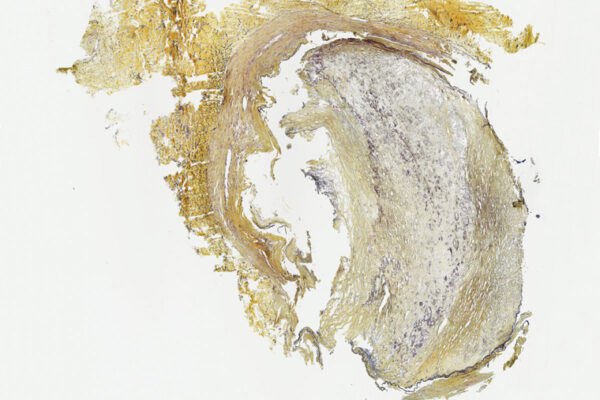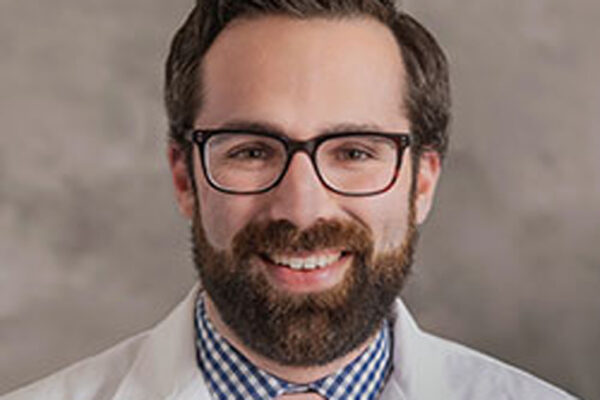Blood marker could help ID those at risk of debilitating peripheral artery disease
Washington University School of Medicine researchers have found a protein in the blood that could be measured to identify patients with limb-threatening ischemia — a condition in which heavy plaque formation causes a severe narrowing of the arteries — earlier in the disease process.
Williams named director of hospital medicine division
Mark V. Williams, MD, a respected leader in hospital medicine, performance improvement and health-care delivery, has been named director of the Division of Hospital Medicine in the Department of Medicine at Washington University School of Medicine. His appointment takes effect Oct. 1.
Farnsworth honored for excellence in clinical chemistry research
Christopher Farnsworth, assistant professor of pathology and immunology at Washington University School of Medicine, has received the 2021 George Grannis Award for Excellence in Research and Scientific Publication from the American Association for Clinical Chemistry.
Garcia receives NIH grants
Benjamin Garcia, head of biochemistry and molecular biophysics at the School of Medicine, along with Matthew D. Weitzman, professor at the University of Pennsylvania, received a five-year $2.9 million renewal grant from the National Institute of Allergy and Infectious Diseases of the National Institutes of Health (NIH) for their research on epitranscriptomic mechanisms.
Radiation therapy reprograms heart muscle cells to younger state
Radiation therapy for ventricular tachycardia — a life-threatening irregular heart rhythm — appears to work by reverting heart muscle cells to a younger state, reducing the irregular rhythms, according to a new study from Washington University School of Medicine.
Bolton receives cancer research foundation award
Kelly L. Bolton, MD, PhD, assistant professor of medicine at the School of Medicine, is one of six early-career physician-scientists to receive the 2021 Damon Runyon Clinical Investigator award from the Damon Runyon Cancer Research Foundation.
Deadly virus’s pathway to infect cells identified
Researchers at Washington University School of Medicine and the University of Pittsburgh have discovered how Rift Valley fever virus enters cells, pointing the way to new therapies to treat the deadly disease.
Time until dementia symptoms appear can be estimated via brain scan
Researchers at Washington University School of Medicine have developed an approach to estimating when a person who is likely to develop Alzheimer’s disease, but has no cognitive symptoms, will start showing signs of Alzheimer’s dementia.
Scrubs recycling drive on Medical Campus
As many School of Medicine employees are now required to wear red, black and gray scrubs, the Operations & Facilities Management Department, in partnership with the Office of Sustainability and MedNik Riverbend Textiles, is hosting a scrubs collection until Oct. 10.
Chen receives Stein Innovation Award
Shiming Chen, professor of ophthalmology at the School of Medicine, has received a 2021 Stein Innovation Award from Research to Prevent Blindness.
View More Stories






